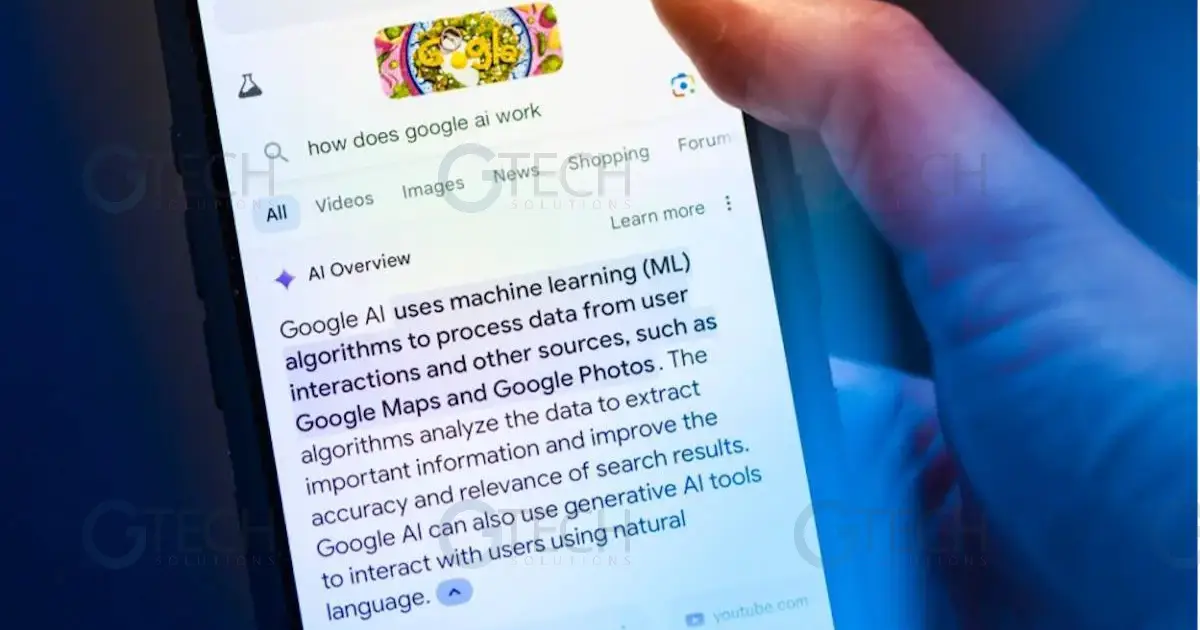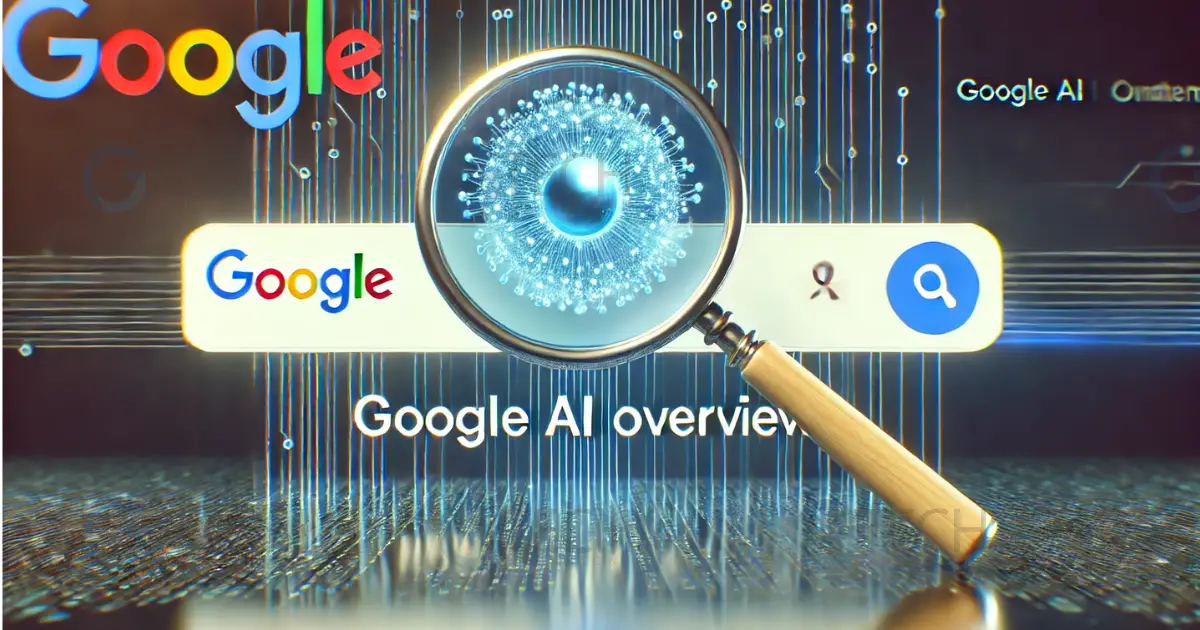The Influence of Google’s AIO on the Future of SEO
In today’s rapidly evolving digital landscape, staying ahead of the curve in search engine optimisation (SEO) is essential for businesses seeking visibility and success. One of the most significant shifts in the SEO industry is the rise of Google’s AIO (Artificial Intelligence Optimisation), which is set to revolutionise how search engines interpret queries and deliver search results. This article will explore how Google AIO is influencing the future of SEO and what businesses and marketers need to know to stay competitive in the years to come.
At G-Tech Solutions, we specialise in providing expert SEO services to clients around the world, helping them optimise their digital marketing strategies and improve their online visibility. With the rise of AI-driven technologies, understanding the impact of Google’s AIO is crucial for anyone looking to succeed in SEO and content marketing.
What is Google’s AIO?
Google’s AIO, or Artificial Intelligence Optimisation, is a sophisticated system that integrates machine learning and artificial intelligence to enhance how Google search engines handle queries, analyse content, and deliver more accurate results. The goal of AIO is to optimise the search experience by making it faster, more intuitive, and more user-centric.
Unlike traditional SEO strategies, which primarily focus on keywords and content optimisation, Google AIO uses AI-based algorithms to understand user intent at a deeper level. By analysing a user’s past searches, preferences, and behaviour, Google’s AIO can predict the best results, even before a user finishes typing their query. This shift from purely data-driven approaches to AI-driven methodologies marks a significant evolution in how SEO professionals approach optimisation.
How AIO is Changing Search Results
The traditional model of SEO has always been centred on optimising content to rank for specific keywords. While keywords are still important, Google’s AIO is shifting the focus toward user intent and content relevance. AIO uses machine learning to understand not just what a user is searching for but why they are searching for it.
For example, with the rise of zero-click searches, where users get immediate answers directly from the search results without needing to click through to a website, Google’s AIO is prioritising providing instant and accurate answers. This means content marketers and SEO professionals must now focus on creating AI-generated content that answers user queries most directly and clearly as possible.
Additionally, Google’s AIO helps to improve voice search and visual search capabilities. As voice assistants like Google Assistant and Amazon Alexa become more integrated into daily life, understanding how AIO optimises search results for voice queries will be key to remaining competitive in SEO. With AIO at the helm, Google is making it easier for users to find exactly what they need with minimal effort.

The Role of AI and Machine Learning in SEO
AI and machine learning have always been a part of Google’s search algorithms, but with the advent of AIO, these technologies are becoming far more sophisticated. Google’s AIO utilises machine learning models to assess a user’s search behaviour, analyse search results, and improve SEO strategies accordingly.
For marketers, this shift means that simply optimising for keywords is no longer enough. AI-based tools and recommendations will play a significant role in shaping SEO strategies. By understanding how Google’s AIO works, digital marketers can optimise their content in ways that better match user intent, creating a more personalised search experience.
Furthermore, AI-driven tools like BrightEdge and other analytics platforms provide insights into search trends, helping businesses track SEO performance and adapt to search engine algorithms that are increasingly influenced by artificial intelligence. The ability to perform detailed analysis and adjust strategies based on real-time data is crucial for staying ahead in the competitive SEO landscape.
The Impact of AIO on Content Creation and Marketing
With Google’s AIO focusing more on user intent and the context surrounding searches, content creation will need to evolve. AI-generated content is already gaining traction, and as AIO continues to evolve, content marketers will need to incorporate this technology into their strategies. However, it’s important to remember that quality content will always be at the heart of SEO. Even with AI, content must be valuable, informative, and aligned with what users are seeking.
Google AIO makes it easier for businesses to focus on creating actionable content that delivers answers to the most pressing questions within their industries. Content that directly addresses search intent, backed by solid data analysis, will not only help improve search rankings but also lead to better user engagement and traffic.
As AIO continues to shape the future of SEO, it will also influence the role of SEO professionals. The need for digital marketers to adapt to AI-driven SEO strategies will be crucial for achieving long-term growth. It’s no longer just about ranking for specific keywords; it’s about creating content that meets the needs of users in a more intelligent, efficient manner.
AI’s Role in Search Queries and Insights
One of the most significant impacts of Google’s AIO is its ability to understand and predict user queries with remarkable precision. As AIO becomes more integrated into Google’s search engines, it will continue to refine how search queries are interpreted, leading to more relevant and personalised results for users.
With AI-driven insights, SEO professionals can better understand the evolving trends in search queries and adjust their SEO strategies accordingly. AI-based tools can provide businesses with an overview of what users are searching for, enabling them to create content that aligns with the latest search trends.
Google AIO also provides a deeper understanding of search engines beyond keywords, as it considers factors such as user experience and relevance. This means that digital marketers will need to focus on optimising for overall search visibility, not just focusing on isolated keywords or link-building efforts.

The Future of SEO with Google’s AIO
As Google’s AIO continues to evolve, the future of SEO looks bright but also more complex. SEO strategies will need to incorporate AI-based tools, machine learning, and data-driven insights to remain competitive. As search engines become more adept at understanding user intent and delivering personalised content, businesses will need to keep pace with these changes to maintain their visibility.
In the coming years, Google’s AIO will likely play an even larger role in search rankings and user engagement, making it essential for businesses to adapt their strategies accordingly. The rise of AI-based search optimisation will continue to disrupt traditional SEO tactics, opening up new opportunities for businesses to enhance their digital marketing efforts.
Conclusion: Embrace the Future of SEO with G-Tech Solutions
The future of SEO is being shaped by Google’s AIO, which integrates artificial intelligence, machine learning, and user intent to transform how search engines deliver results. For businesses looking to stay ahead, embracing AI-driven SEO strategies and adapting to the evolving search landscape is critical for continued success.
At G-Tech Solutions, we specialise in crafting comprehensive SEO strategies that leverage the latest SEO trends and AI tools to maximise online visibility and search rankings. Whether you’re looking to optimise your content, improve search traffic, or gain insights into your SEO performance, our expert team is here to help. Contact us today to learn how we can help you navigate the future of SEO and achieve your digital marketing goals.



